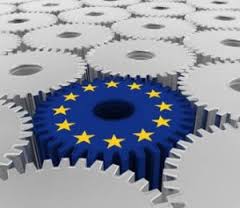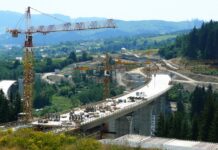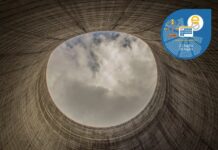
But which institution could be helpful in this respect? Traditionally, it is the Ministry of the Environment that deals with the Covenant, but it may be high time that also a new body or another ministry-supporting system could be taken into consideration.
In this aspect is it quite obvious to think of an association which has always been a trait d’union and a speaker of Italian communes and their problems: ANCI Associazione Nazionale dei Comuni Italiani (National Association of Italian Communes). We ask Giada Maio about it, director for energy and the environment at the association:
We as ANCI have pointed out to the absence of a unique line of development at the national level. A strong role of the central government is necessary, although it is crucial that the program be created by the communes, so that could communicate what has been missing in their areas.
The problem is that in the field of energy and efficiency, similarly to other aspects, the regions issue different guidelines also bridging the gaps among various areas which unfortunately exists in Italy. Yet, it entails uneven development within the country. For this reason a body that would unify the rules is necessary. However, there is more to it. Also the standards, the models and the guidelines need to be uniformed. All of this was necessary from the beginning. This difficulty derives from the fact that during the first three years the adherent members found it hard to issue the same Action Plans.
We represent an approach, as mentioned above, that the smart city has to get along with the Covenant of Mayors. On many occasions we have received discordant responses which according to some entities, waste management is not covered by the Covenant, and the mobility refers almost exclusively to the bicycles. We would expect much more. What do you think about it?
In our opinion the matter of the Covenant of Mayors partly corresponds with the smart city in that the PAES (Piano di Azione per l’Energia Sostenibile – Action Plan for Sustainable Development) was not concerned in the use of new technologies, whereas the smart cities emerge therefrom. There is also an issue related to the public/private participation. The smart city attracts international companies much more than the PAES, although when talking about the Action Plan we refer to our ideas of intelligent city, where thus the real problem is faced.
The five pillars of the PAES are as follows: efficient administration, waste, sustainable mobility and buildings. Yet, these assets require availability of data from these sectors and this is a great limitation. The data is actually the first phase which allows beginning to study at an action plan that would be reasonable for the area. However, it is not so easy for a commune to receive digital reports regarding its own area from the companies providing maintenance services, as it is in turn provided for by the law.
Per ricevere quotidianamente i nostri aggiornamenti su energia e transizione ecologica, basta iscriversi alla nostra newsletter gratuita
e riproduzione totale o parziale in qualunque formato degli articoli presenti sul sito.


















